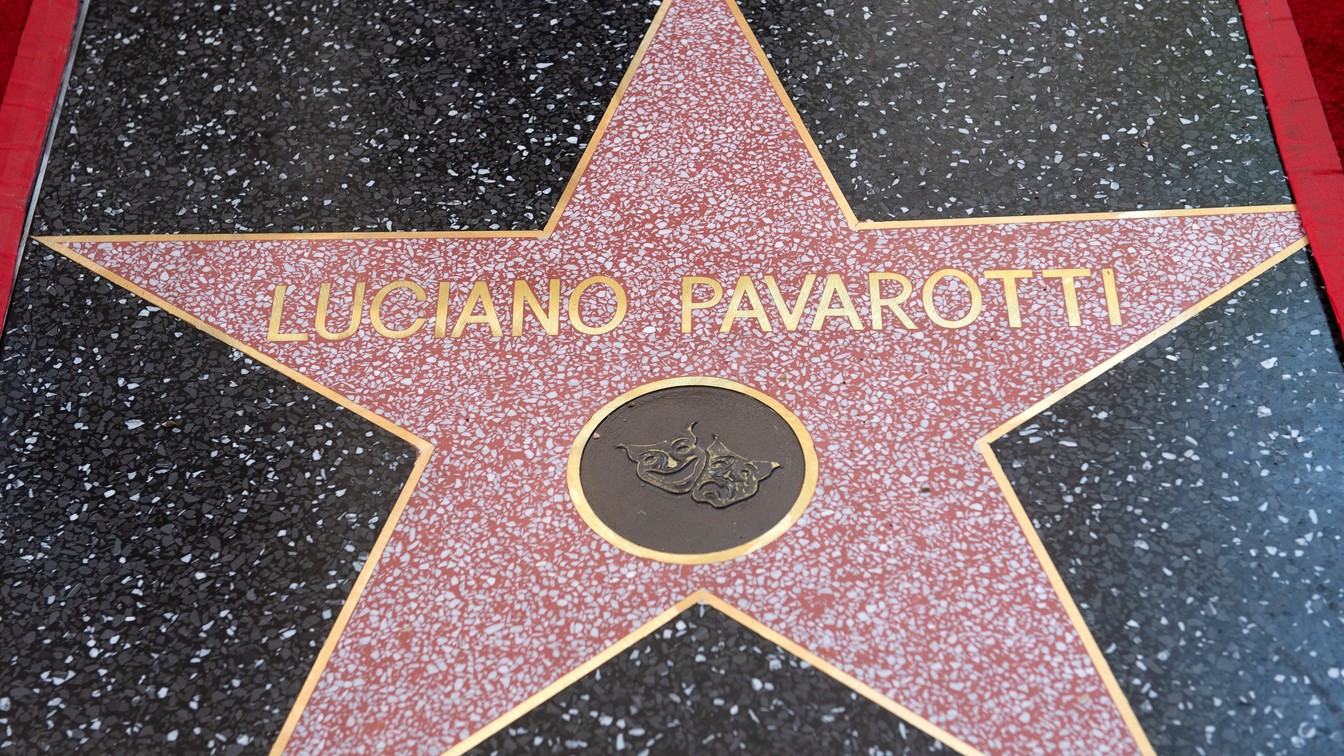

Giuseppe Verdi's Requiem Mass is a rehab center for drug addicts. Franz Schubert's Ave Maria and the sign hanging from the lamppost promoting a school of rock. Music, stars, opera a stone's throw from Buffalo Wild Wings' fried chicken, Nirvana and the road to Wattles Garden Park. Finding chicken wings in the same song lyrics could only happen when talking about Hollywood, this perennially oblique place, different from everywhere else, north of Los Angeles, where, as Marylin Monroe said, they pay thousands of dollars for a kiss and fifty cents for take your soul. Here even those sitting in the pub ordering a beer challenge you to recognize them with a stare, posing as a mysterious star even if they are perhaps unemployed or an aspiring gigolo. But if you talk to a random guy you meet on the streets of Hollywood Boulevard, he could have a hundred thousand followers, because this is the only place in the world where success is routine, the air seems tinged with gold and the celebrities and the sidewalk are one and the same.
From August 24, 2022, this is also true for Luciano Pavarotti, whose name has been imprinted forever at number 7065 Hollywood Boulevard on star number 2730 in Tinseltown. The name of the great singer was placed a few steps from the red brick steps leading to the headquarters of an organization that helps people in need. Nothing happens by chance. The motivation expressed by the producer of the Hollywood Walk of Fame, Ana Martinez, describes Pavarotti as “a legendary Maestro, whose voice has transcended generations, a gift to the world and a legend for eternity.” The Great Italian was one of the most iconic opera singers ever, able to win the hearts of audiences all over the world over a career spanning almost half a century, from 1961 to 2004, from the Wiener Staatsoper to the Royal Opera House Covent Garden, from the Teatro alla Scala to the Metropolitan Opera House, always winning over new audiences and new spaces, from Madison Square Garden to Central Park.
Pavarotti was the rocker of opera
Pavarotti was the rocker of opera. Universal showman. Pavarotti will remain the voice who sang in 1990 in front of 800 million viewers who tuned in from all over the world to follow the Concert of the Three Tenors at the Baths of Caracalla. He will remain the artist who won five Grammys, the Grammy Legend Award, two Emmys and a whole slew of other honors. But its location at number 7065 is a symbolic tale of his humanity. His daughter Cristina, who brought an emotional testimony to the unveiling ceremony, recalled the “hours spent signing autographs so as not to upset anyone,” despite her father being tired and hungry after a concert, and the time that, at the student auditions, intimidated by his presence, the Maestro offered a glass of water and made a joke to ease the tension.
Pavarotti, says those who know him well, “sang so wonderfully because, inside, he had such a wonderfully sweet character.” In 1998, he was appointed by the UN as a Messenger of Peace. Together with his great friend, Princess Diana, he raised funds for clearing landmines. Every year in Modena, he hosted charity concerts. He sang for everyone, the great and good and the last in line; for world princes and leaders and for the victims of Bosnia, Guatemala, Kosovo and Iraq. In 2001, six years before he died at the age of 71, the tenor received the United Nations High Commissioner Nansen Medal for his efforts to raise funds for refugees around the world. Through his concerts he had raised more than one and a half million dollars. To think that, as a boy, he was torn between continuing to sing or becoming a footballer. And in 1982, he attempted a sortie into film, in the romantic comedy Yes, Giorgio, only to be panned by the critics. His “place” was in his voice, therefore nowhere and at the same time everywhere
LThe motivation: “A legendary Maestro, whose voice has transcended generations, a gift to the world and a legend for eternity.”
And that voice, which his daughter Cristina says helped her “fly so very high,” led him along this stretch of Hollywood Boulevard, where you can read the names of other Italians, some dead and some not, the opera singers Licia Albanese, Renata Tebaldi, Enrico Caruso, Beniamino Gigli, Andrea Bocelli, the director Bernardo Bertolucci, the actresses Gina Lollobrigida, Sophia Loren, Anna Magnani, the conductors Arturo Toscanini and Annunzio Paolo Mantovani, the maestro Ennio Morricone. And with them, the Italian Americans, from Tony Bennett to Nicolas Cage, Frank Capra, Danny DeVito, Giancarlo Esposito, the “Genoese” Henry Fonda, the “Tuscan” Susan Sarandon, the “Sicilian” Martin Scorsese, Angelica Huston, daughter of the dancer Erica Soma, and then Dean Martin, Joe Mantegna, Frank Sinatra, Sylvester Stallone, John Travolta. All united by a bright pink star edged in bronze and set in the sidewalk, in the town that invites you to look down and then to look up, looking for something, without knowing what, and maybe find a young tenor on the corner of LaBrea Avenue singing an Ave Maria in honor of the Maestro. Because apart from life, everything of Pavarotti has remained.